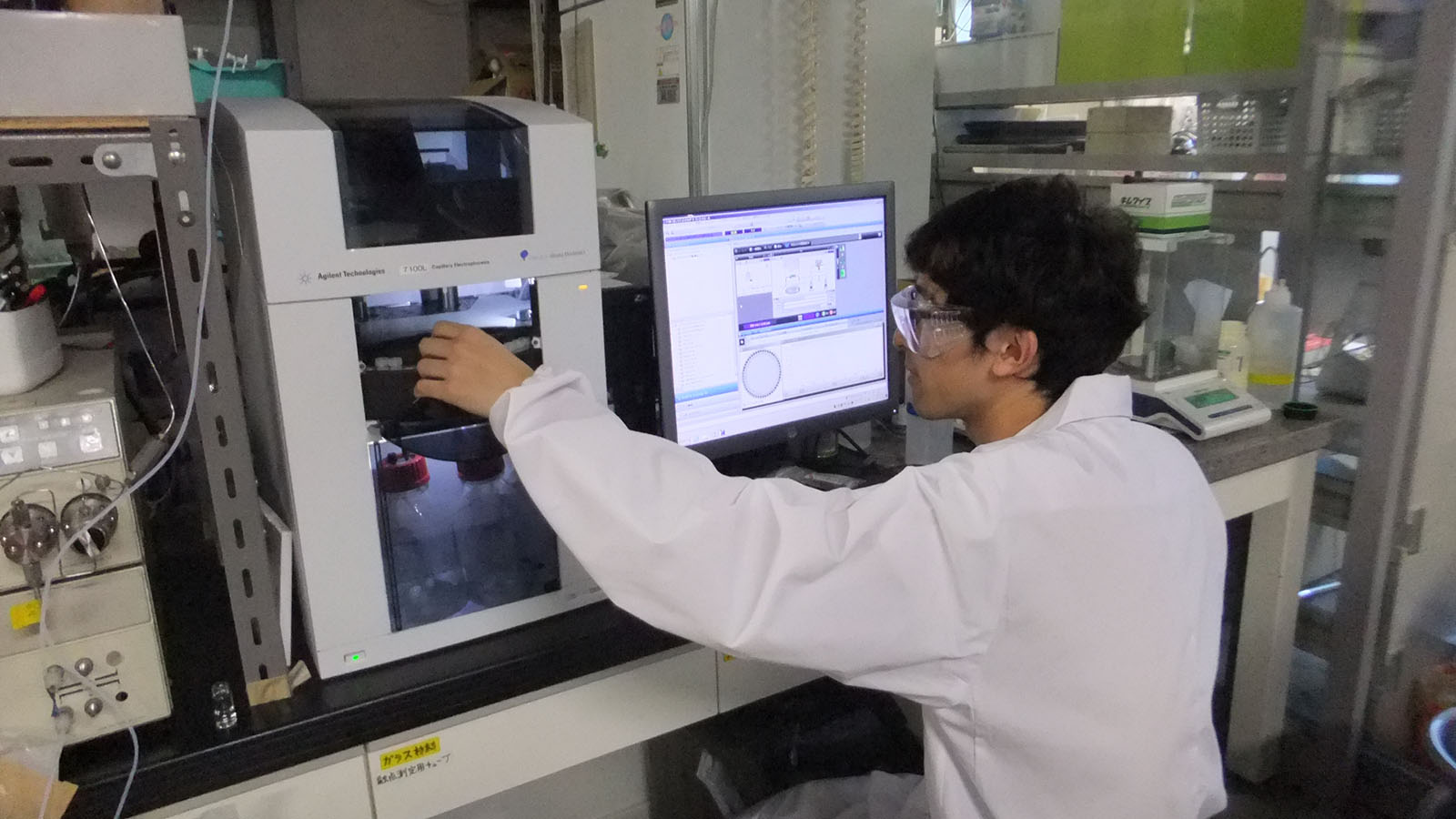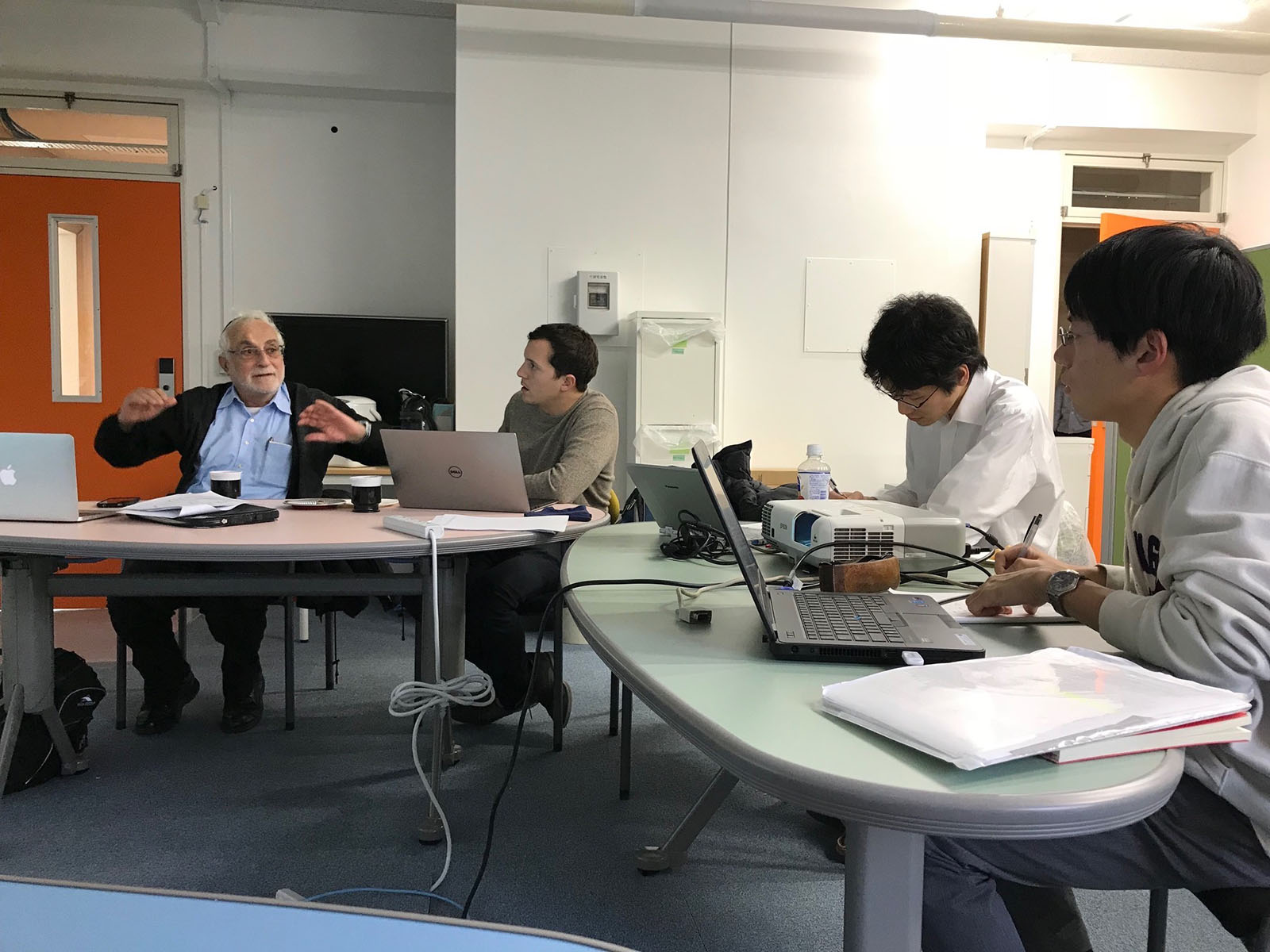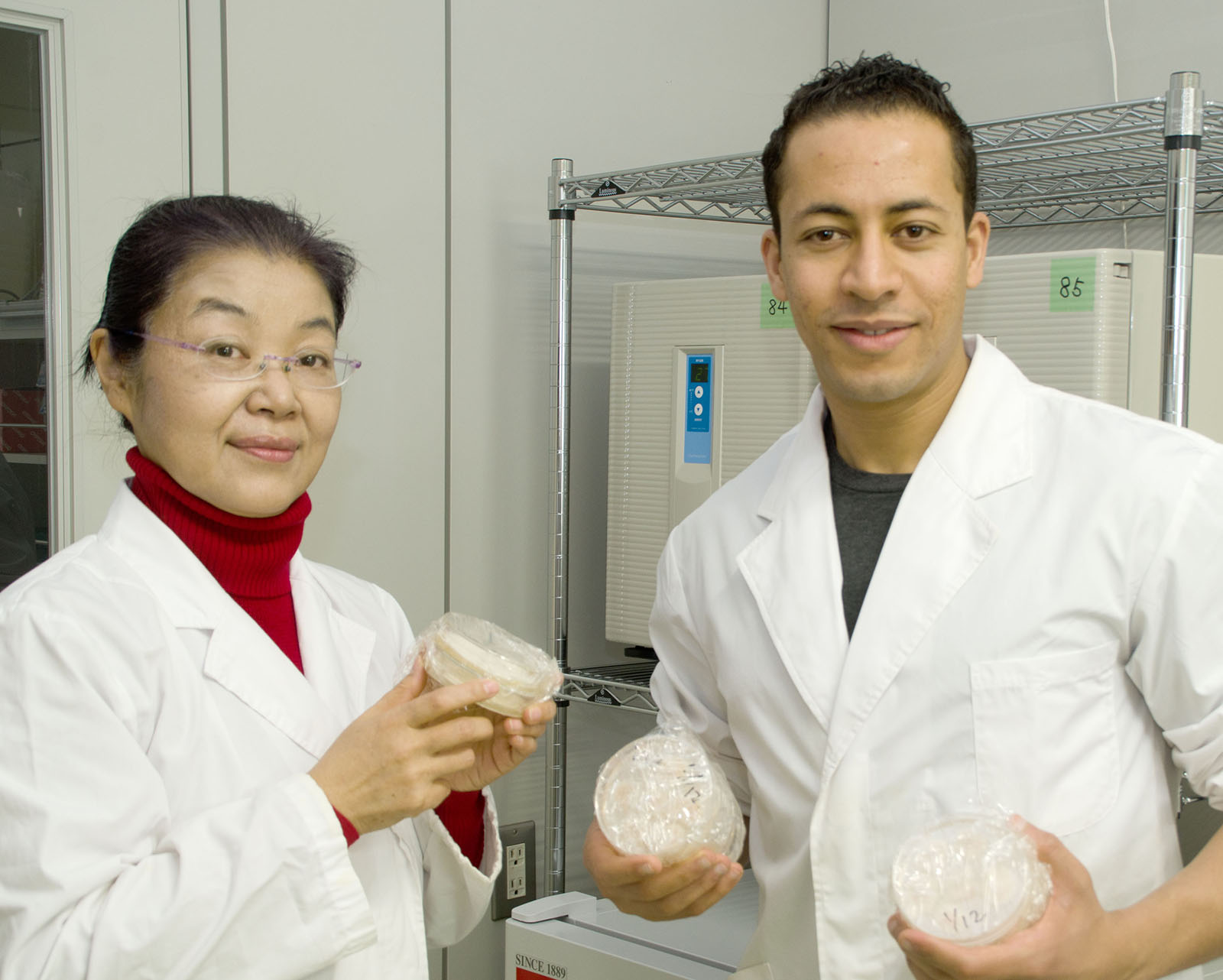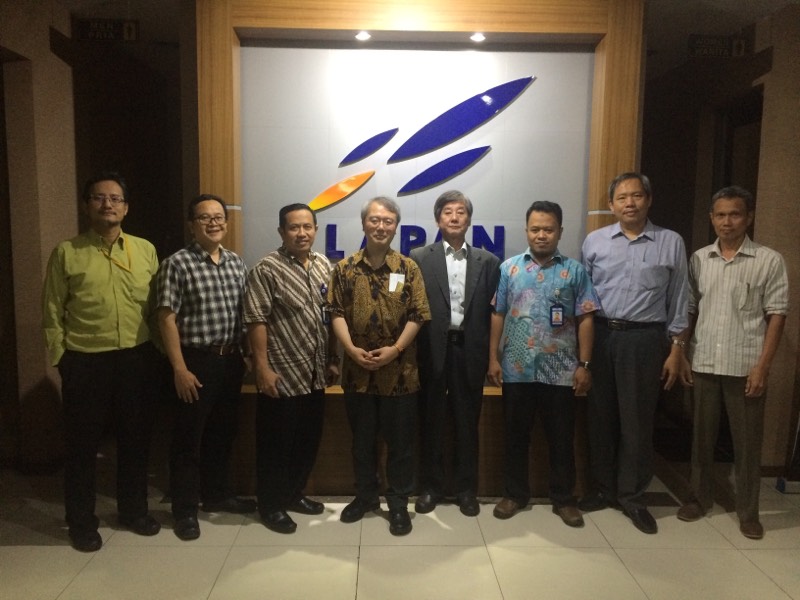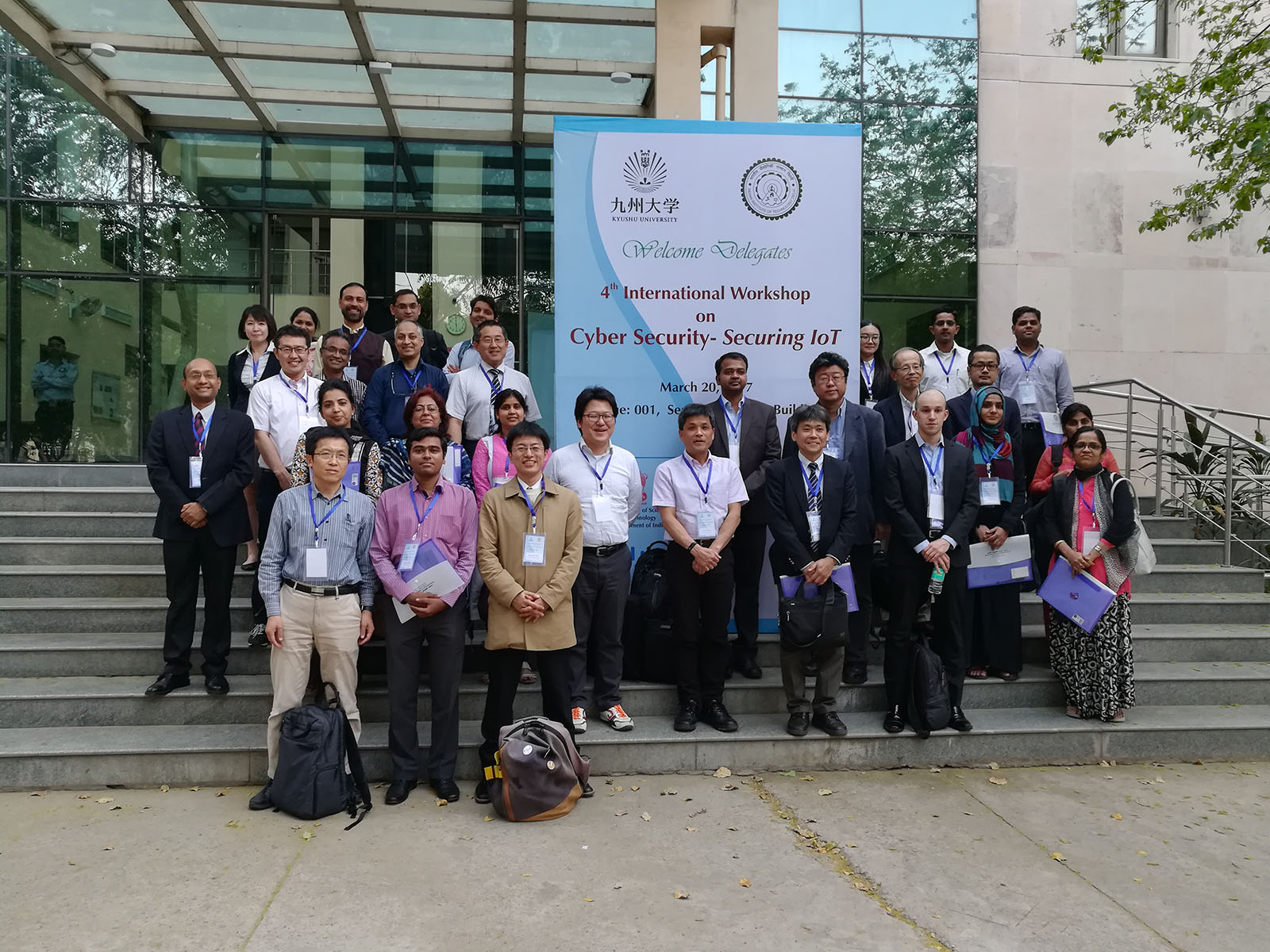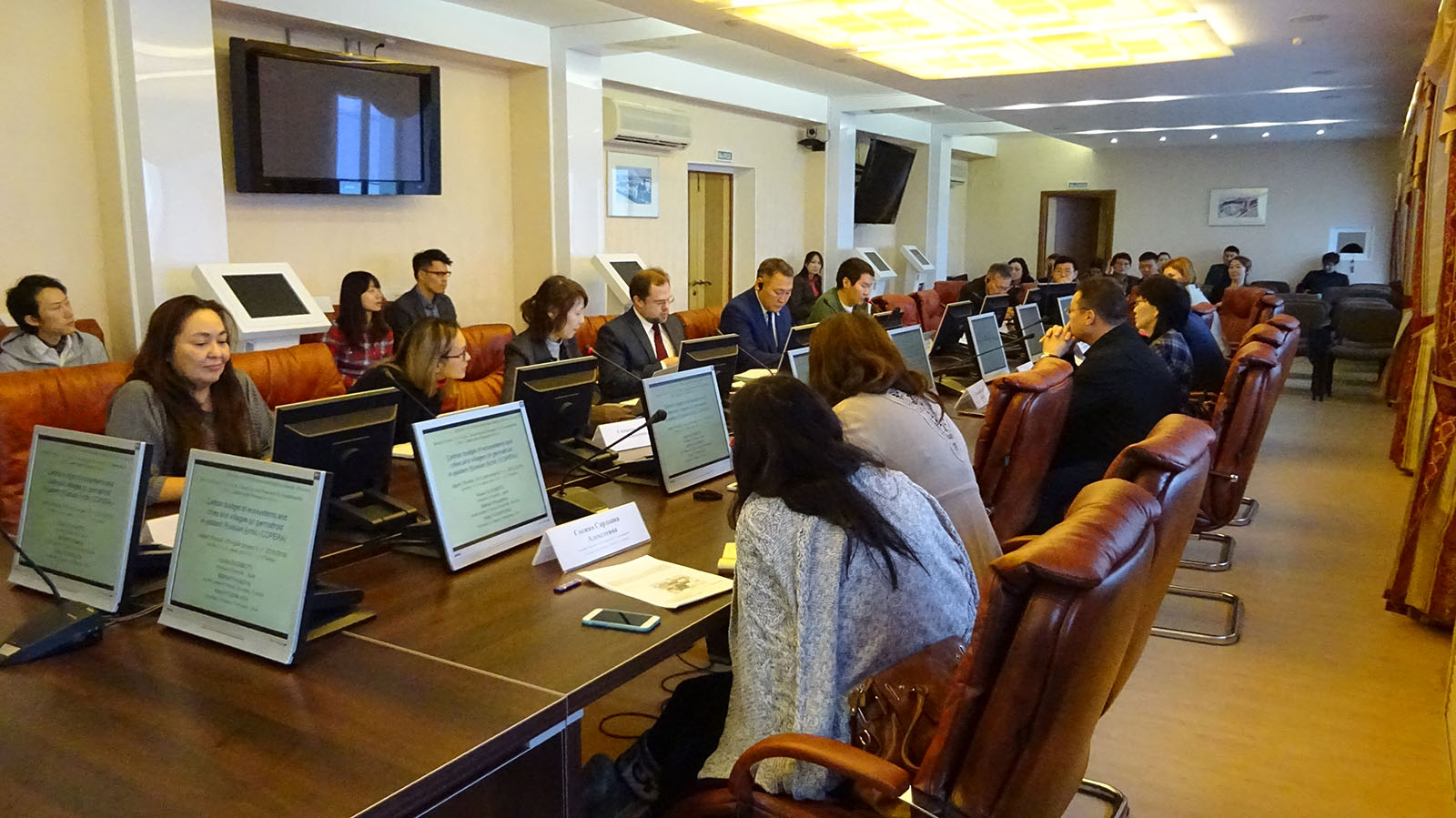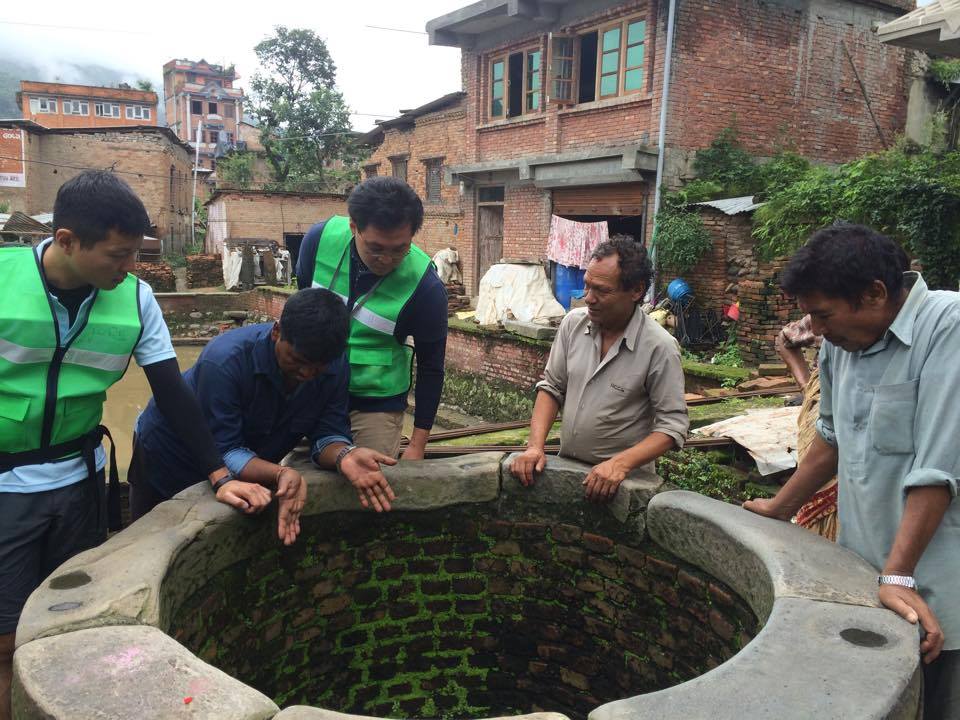What does the Department of International Affairs do?
What does the Department of International Affairs do?
We strive to contribute to global problems and science diplomacy efforts by bridging researchers from Japan to the rest of the word through programs for innovative collaborative research. In SICORP (Strategic International Collaborative Research Program), addressing the needs and priorities of partners across both developed and developing countries we explore integrative strategies for long-term cooperative networks
Program Setup
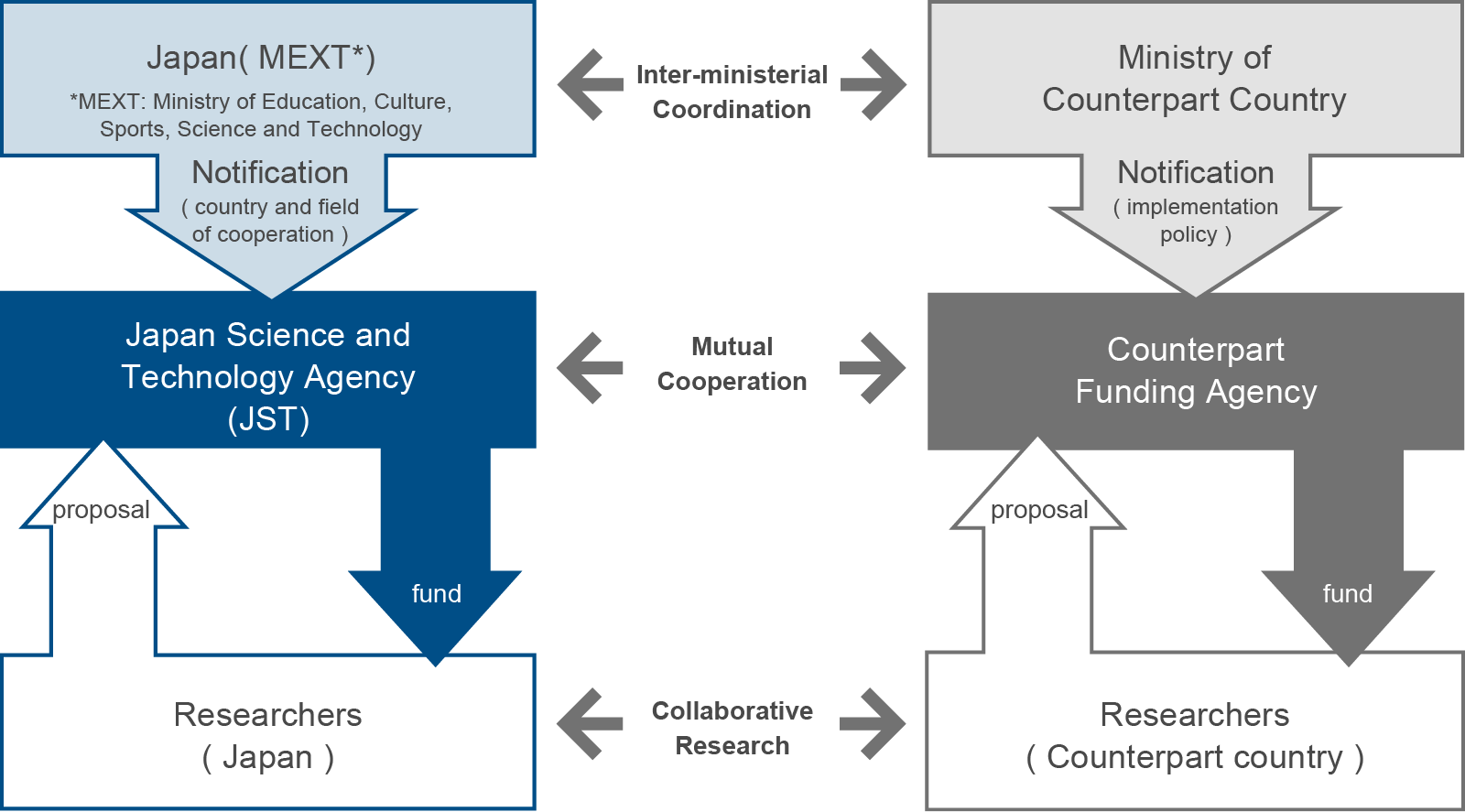
Bilateral cooperation

Partner : France
Molecular Photocathodes for CO2 reduction and H2 evolution (PhotoCAT)
This collaborative research between Japan and France aims to discover new molecular technology produced through conversion of sunlight to chemical energy. By harnessing the power of visible light to generate electricity in water, Japanese researchers successfully developed photonic anode electrodes through oxidization of water and carbon-dioxide reducing molecular photonic catalysts, while French researchers developed hydrogen-generating molecular photonic catalysts.
PI : Osamu Ishitani, Professor, Graduate School of Science and Engineering, Tokyo Institute of Technology

Partner : Israel
Rumor and Disinformation Spreading in Cyber-social Networks - universality, Detection and Prevention
By analyzing sources of big data such as blogs and twitter contents, we study the background for how harmful rumors occur in society and what networks they are spread through. In our previous study, it was found that there are characteristic patterns across countries and language barriers in how rumors spread out. Our international collaborative research aims to establish scientific measures to minimize the disorder of society caused by the propagation of unfounded rumors.
PI : Misako Takayasu, Professor, Tokyo Institute of Technology, Institute of Innovation Research
CONCERT-Japan
e-ASIA JRP


Partner : Spain, Germany
Increased harvest yields through combined cultivation of plant pathogens and crops.
Stress incurred by declining environmental conditions leads to decreases in crop yield and quality. At the same time, it has been found that by cultivating microbes usually thought to be causes of disease together with plants and ensuring they remain out of contact, great increases in crop yield can be achieved. With this principle, we research the most effective ways to increase yield and quality by increasing resistance to dryness, high CO2 and high temperatures. Through the cooperation of Europe and Japan and utilisation of cutting edge techniques, we will unveil the process behind this phenomenon.
PI : Kimiko Itoh, Niigata University, Professor
e-ASIA JRP


Partner : Indonesia, Philippines
Monitoring and prediction of extreme weather using lightning detection network and micro-satellites
Through development of stereo imaging techniques of cloud spatial structure data from the DIWATA-1 satellite, we were able to successfully create 3D models of clouds from medium (60m) and high (3m) resolution images. By developing a bolometer infra-red camera to equip ultra-small satellites, we begin development of an program to assess the position of lightning discharges through terrestrial radio-wave observations.
PI : Yukihiro Takahashi, Professor, Hokkaido University
CHIRP
Belmont Fourum

Partner : India
Towards the development of IoT server space and secure practices
We are collaborating with India to research safe and secure commercial systems entrusted with data from IoT devices expected be a growing part our daily lives. This research is characterized a combination of expertise in computer science from Japan with electrical engineering from India, along with the education of safe and secure ways for users to deal with the developed IoT system. Workshops are held every year to widely disseminate progress from the research.
PI : Koji Okamura, Professor & Director of Cybersecurity Center, Kyushu University
Belmont Fourum


Partner : Russia Sakha Republic
C budget of ecosystems and cities and villages on permafrost in eastern Russian Arctic (COPERA)
This research aims to clarify the carbon balance of the terrestrial ecosystems and societies of the Sakha Republic, Russia, through measurements and collection of statistical data. It aims to pave the way for residents to receive basic data on indicators of environmental change, enabling residents and local governments to consider solutions for a better way of life. A stakeholder meeting with natural and social scientists from Japan, United States and Russia as well as staff from Sakha Republic and Yakutsk City is held every year in Russia (photo). We are also managing the Sustainable Campus Project at the North-Eastern Federal University. We collaborate in four topics, "management", "education and research", "environment", and "local society" with the University and students, who are expected to play leading roles in the future for society.
PI : Atsuko Sugimoto, Professor, Hokkaido University
J-RAPID

Partner : Nepal
Investigative research into the effects and recovery strategies for water security after large earthquakes in Nepal
Water is quintessential to life, being responsible for the nature which surrounds us. In developing countries it is common to obtain water through wells, but being sourced from underground water, it is vital to understand the flow and available water to ensure it does not run out. By applying Japan's scientific and technological capabilities, local populations will be assisted with procuring water sustainably by relaying knowledge gained about flow of underground water and its structure.
PI : Futaba Kazama, Professor, University of Yamanashi


